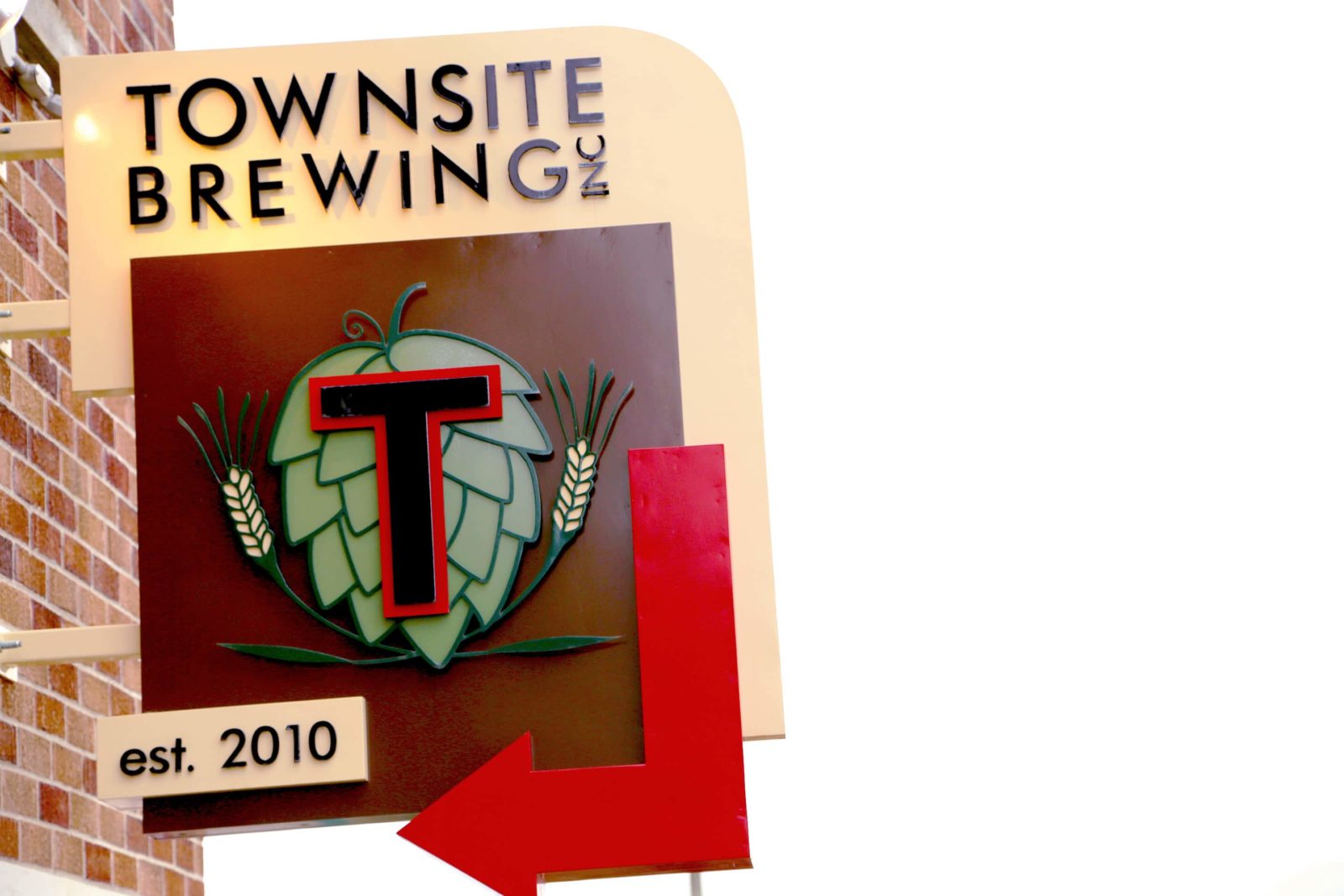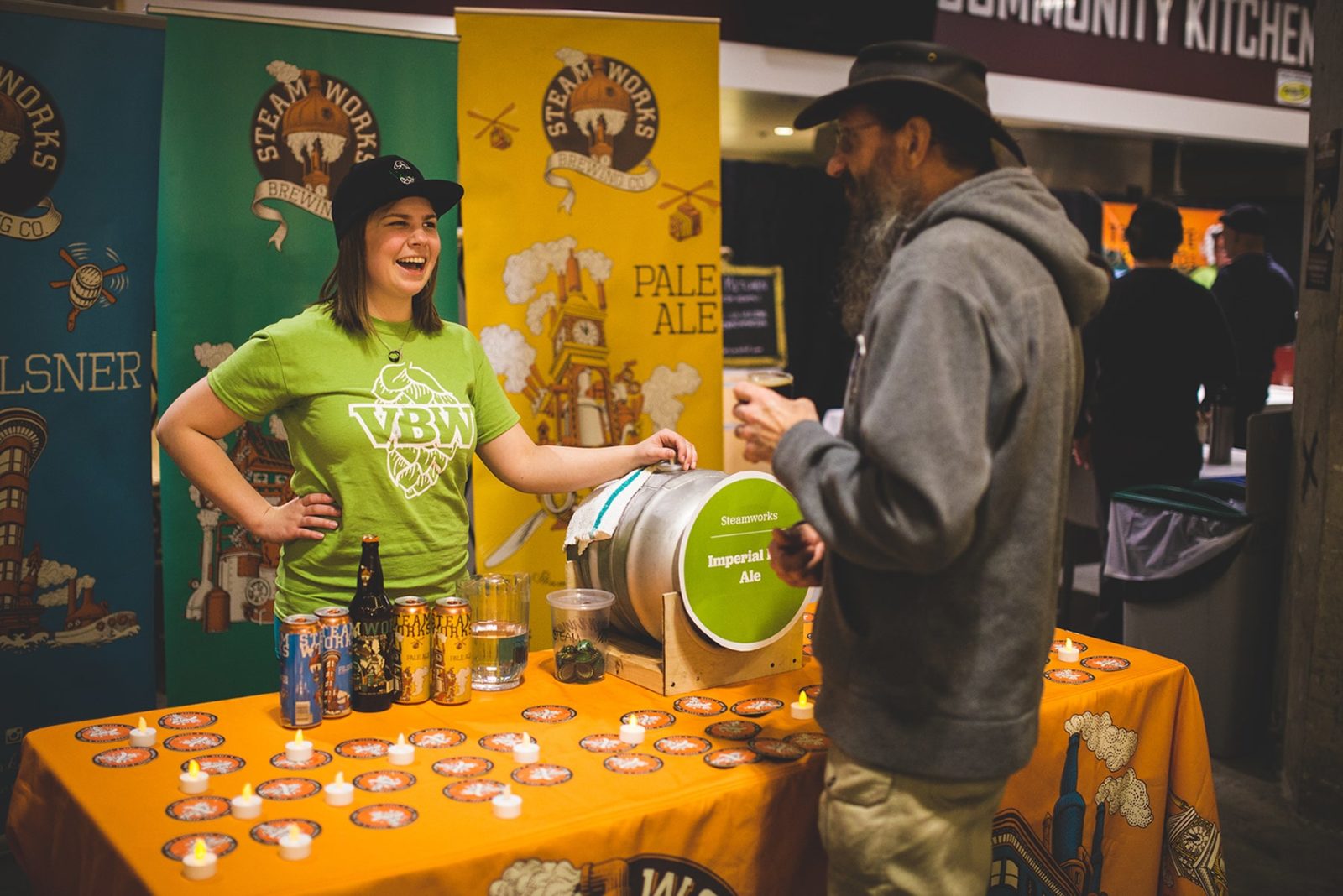Despite recent social, economic, and environmental turmoil, a love of delicious craft beer connects the communities of Northern British Columbia.
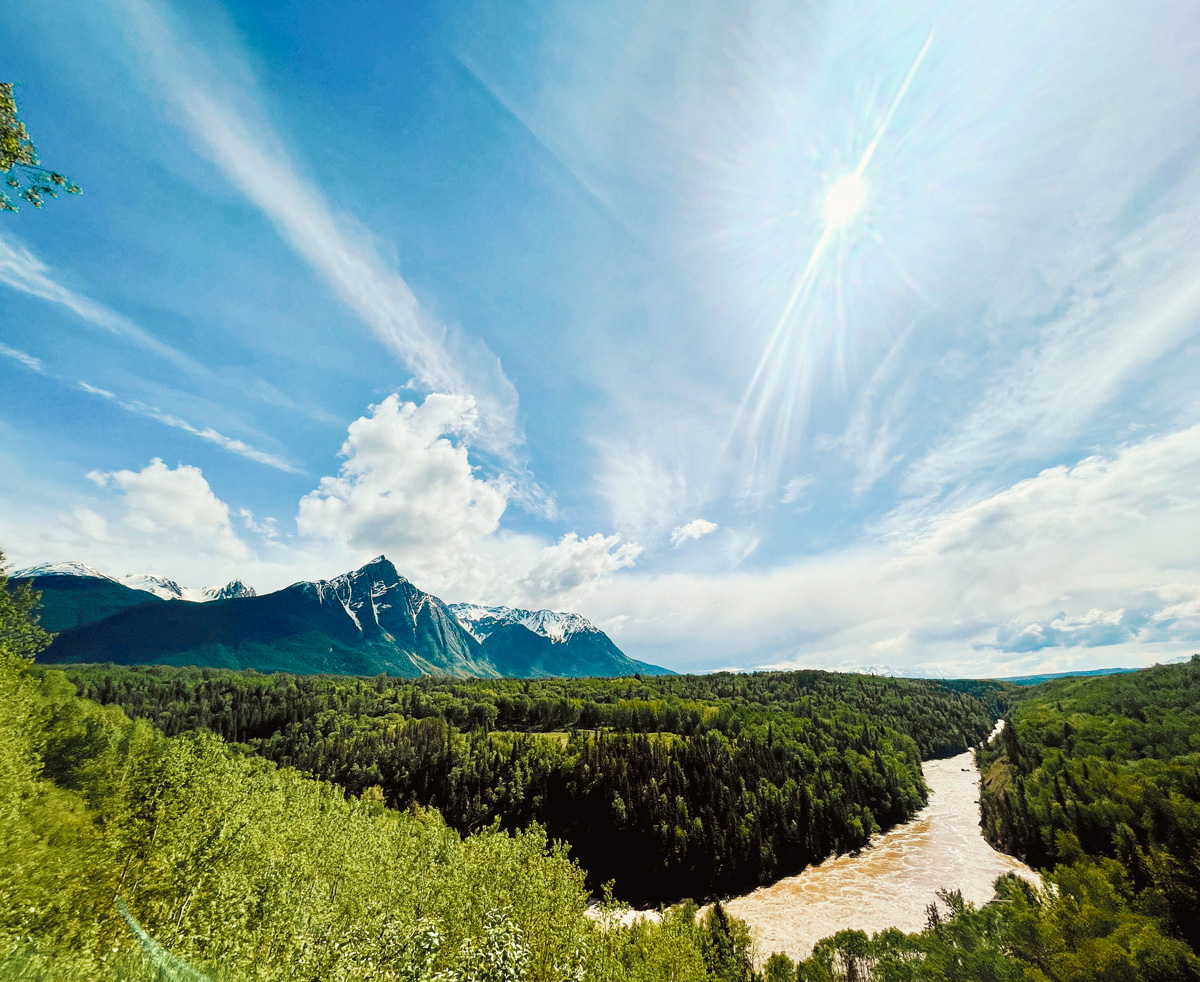
Last summer, I traveled to the edge of Canada in northwestern B.C., where breweries dot communities backdropped by snow-capped mountains, raging rivers, and ancient forests. I’d never been west of Winnipeg so it may as well have been the edge of the world. I went there on an organized tourism trip run by the BC Ale Trail looking for beer–I was on the hunt for the seasonal Spruce Tip beers in particular–but ended up leaving with a crystalized sense of where beer sits, for this community and me, in this so-called return to normalcy.
After a layover in Calgary, I flew to Prince George, the gateway and economic hub of Northern B.C. The town sits at the confluence of the Nechako and Fraser rivers and is a hop, skip, and a jump from the dazzling Chun T’oh Whudujut/Ancient Forest, a portion of the only inland temperate rainforest in North America. Prince George boasts three breweries, each with differing tap lists and points of view: Cross Roads Brewing, Trench Brewing, and the newly opened Deadfall Brewery.
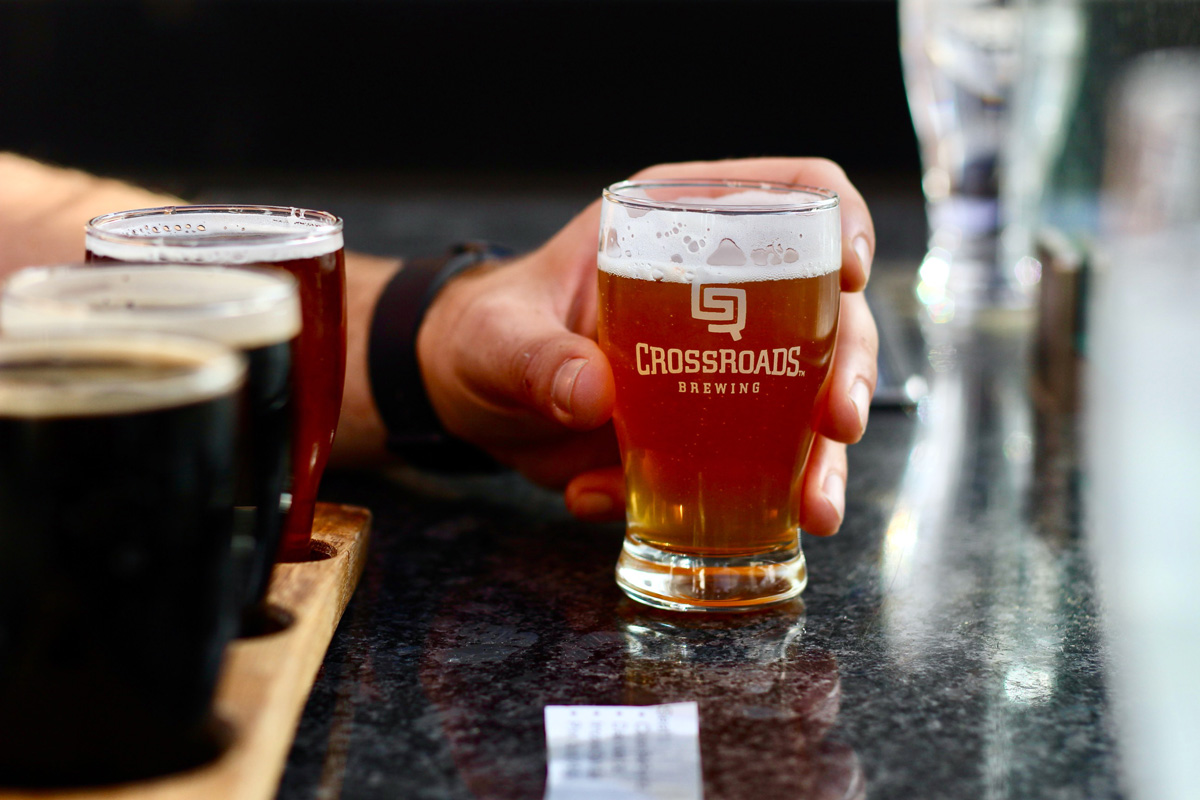
At my first stop, CrossRoads Brewing, sampling Pidherney Pale Ale was better for my jet lag than the Gravol. Their classic northwest pale ale screamed grapefruit pith and pine with distant fieldberry notes. Head brewer Tyson Brooks walked us through the brewery but beyond its shiny facade something else grabbed my attention–a blue and yellow label emblazoned with “Putin is a Dick.” The worldwide collaboration initiative called “Resist” was launched by Pravda Brewery after Russia’s invasion of Ukraine and Brooks had just released CrossRoads’ own interpretation in order to raise money to support refugee relief.
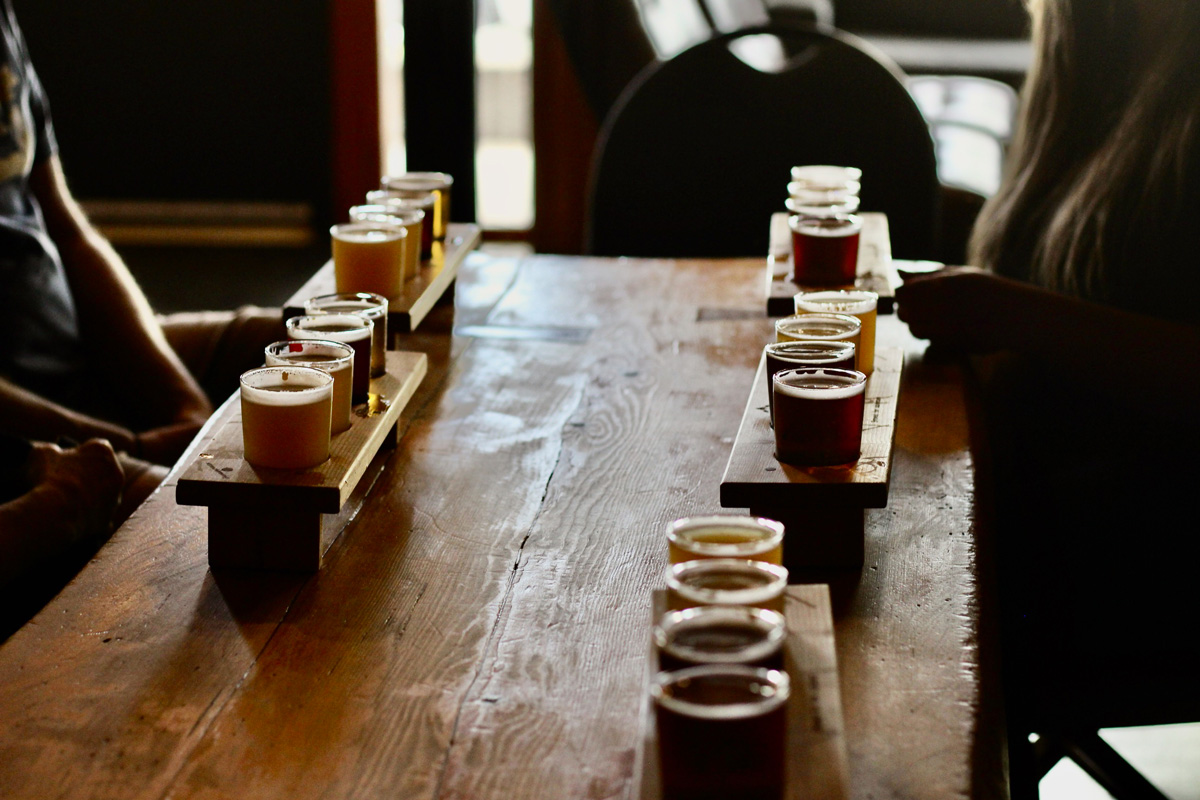
Across town at Trench Brewing, the locals drink The Fang IPA, their best-selling flagship hazy, but I was blown away by their subtle and spicy Czech Lager, Arctic. Getting to drink straight from their bright tanks was a privilege afforded by Joe Wiebe, our guide and author of Craft Beer Revolution: The Insider’s Guide to B.C. Breweries.
From Prince George, we made our way by car down Highway 16, the lifeline of northwestern B.C. that travels all the way to Prince Rupert on the coast. The scenic spell got interrupted by faded red dresses dangling from trees. Highway 16 is known by another name, The Highway of Tears, from where dozens of First Nations women have disappeared or been found dead. Just as with the Putin label, the red dresses are symbols of a crisis still simmering beneath the surface.
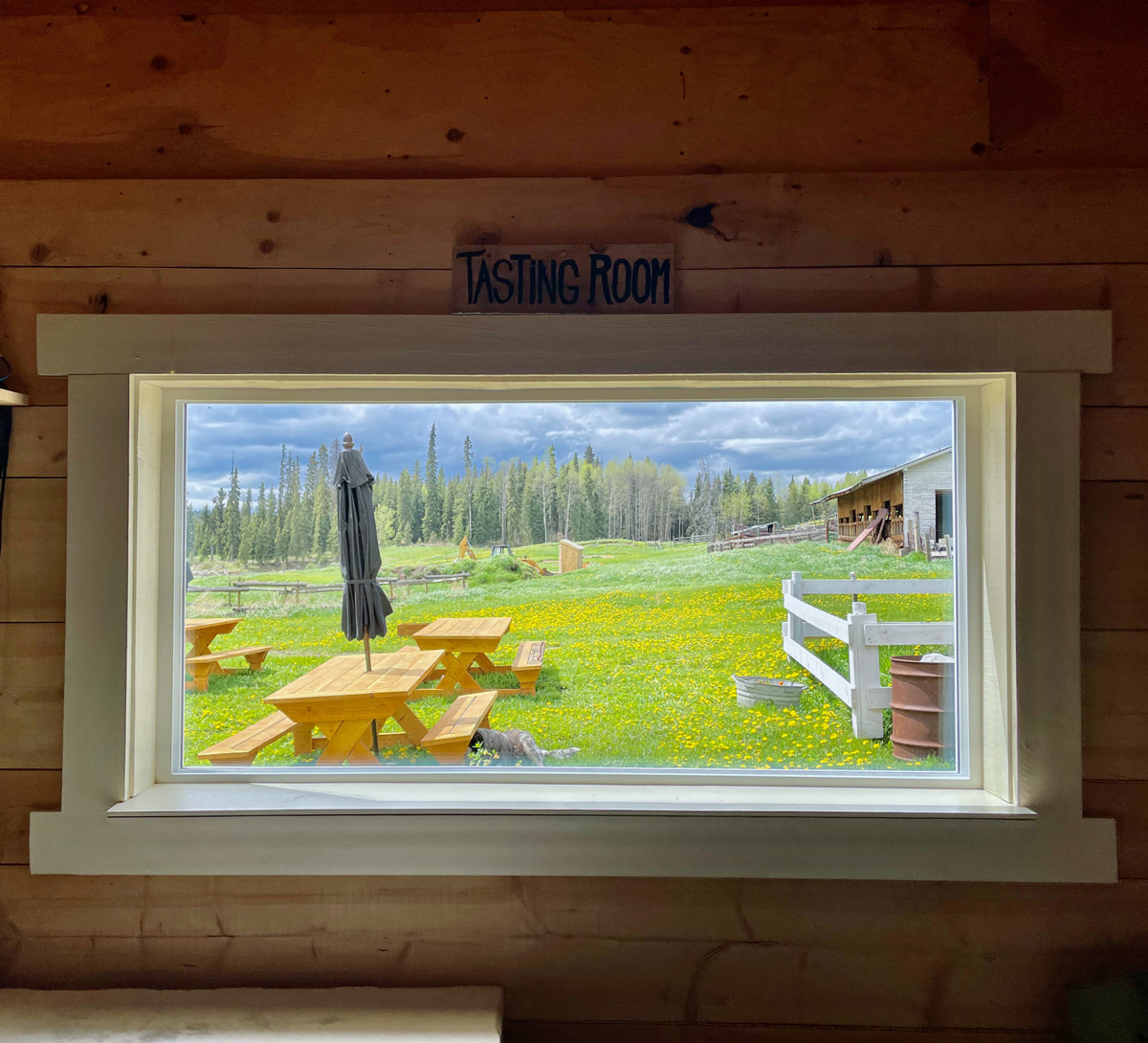
Ursa Minor Brewery sits off the shores of Ootsa Lake on a 540-acre ranch a few hours east of Smithers. Using his father’s old bush plane hangar, owner Nathan Nicholas and wife Gwyn finally opened their doors in 2021 after a devastating wildfire charred the region in 2018 and the pandemic sidetracked their plans. The brewery is only accessible by dirt roads and a ferry or float plane from communities nearby; which are known more for their fishing and hunting lodges than for craft beer. Put another way, Ursa Minor is arguably Canada’s most remote brewery, and perhaps its most beautiful. We arrived by float plane and the moment I stepped off, it felt like being touched by God. I’ve never seen green be so green. Vibrant beds of yellow sunflowers led up to their taproom.
Nicholas travels hundreds of kilometers to pick up his malt and hops, and forages on their farm for his other ingredients. Their beers are intentional and rooted in place, especially their malty, sessionable Red Squirrel Red Ale. Your brewery bucket list needs a rewrite and Ursa Minor has to be on it.
From there we headed west to Smithers, a recreational town known for its larger-than-life personalities and even larger ski slopes. Bulkley Valley Brewery, a ski shop-turned local favourite, was fresh off a silver medal at the Canadian Brewing Awards for their Ullr Oatmeal Stout and it was easy to taste why. The interplay of roast, light acidity, and chocolate was a study in restraint and delight.
Head brewer and owner Dave Harris built what’s clearly a community hangout spot, but the thing on most locals’ minds was the worrying spring thaw and the rising water levels of the Bulkley and Skeena Rivers, which were threatening to flood the town or disconnect Smithers from neighboring communities.
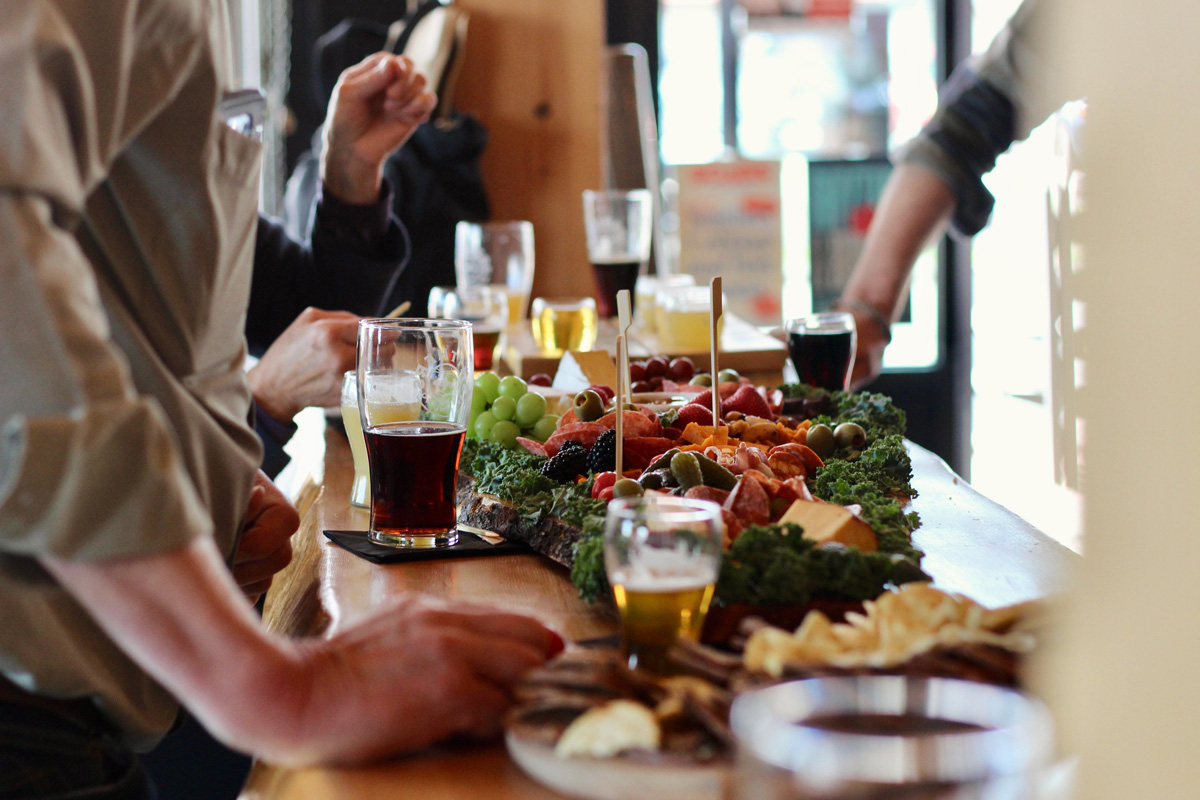
A few blocks away, Smithers Brewing Company crafts modern styles in their modern taproom, with a draught list replete with sours, hazy IPAs, and barrel-aged farmhouse ales. However, I was struck by Bootlegger Brown Ale, which showcased a hard-to-nail malt depth without being sweet. Black tea, caramel, and a hint of backing bitterness merged to create one of the trip’s best beers.
Traveling from Smithers to Prince Rupert by way of Terrace is breathtaking and many consider it to be the most scenic drive in all of Canada. From Seven Sisters Peak to Ksan First Nation Village, I never stopped feeling a sense of gratitude and wonder. And, of course, Terrace is home to a brewery of its own — Sherwood Mountain Brewhouse has a sunny patio and a welcoming tasting room with a range of beers that offers something for everyone.
If there’s such a thing as a godfather of brewing in Northern B.C., the title surely belongs to Craig Outhet who opened Wheelhouse Brewing in Prince Rupert back in 2013. Along with Chef Dai Fukasaku at nearby Fukasaku, they led a jaw-dropping beer pairing dinner: tuna tataki from Haida Gwaii with a crispy pils, steamed sidestripe shrimp from Kitimat Sound with white IPA, maple miso glazed black cod with West Coast pale ale. There was no time for note taking–only eating, drinking, and good conversation. In this small 14-seater restaurant in Cow Bay, the meal towered above the surrounding mountains.
The following day, Prince Rupert was getting set to welcome only the second cruise ship to port since the start of the pandemic. What was once a bustling tourism destination became an isolated paradise during the Covid-19 outbreak. I walked by shuttered businesses on the main street. Outhet told me Wheelhouse would be closed for the day despite the thousands of tourists coming to town. When I asked him why he’d turn down the business he smiled and said, “because I brew for people here.”
As I walked back to my hotel room with views of the Prince Rupert Harbour, I still couldn’t shake the duality of the trip. Beer has an incredible ability to keep us grounded and connected. Beyond the headlines and anxieties that inevitably surround us. Whether it was the late spring thaw, reconciliation, or fishing caps, beer remains a gateway to having these difficult conversations or gracefully shelving these problems for another time. Local beer is as constant as the scores of bald eagles that soar overhead.
As I prepared to call it a night, the hotel receptionist stopped me in my tracks. “Did you see them?” She pointed to the inn’s small deck with a view of the harbour. I walked out and saw a few cars parked by the water as people stood in amazement.
They were looking out but I couldn’t tell why until I saw one gracefully leap out of the water. A family of orcas breaking through the grey. I cracked open my can of Wheelhouse Scurvy Dog Spruce Ale–the beer I had come looking for–and sat there on the deck. More cars came. I was alone with my beer. All at once the world felt big again.



